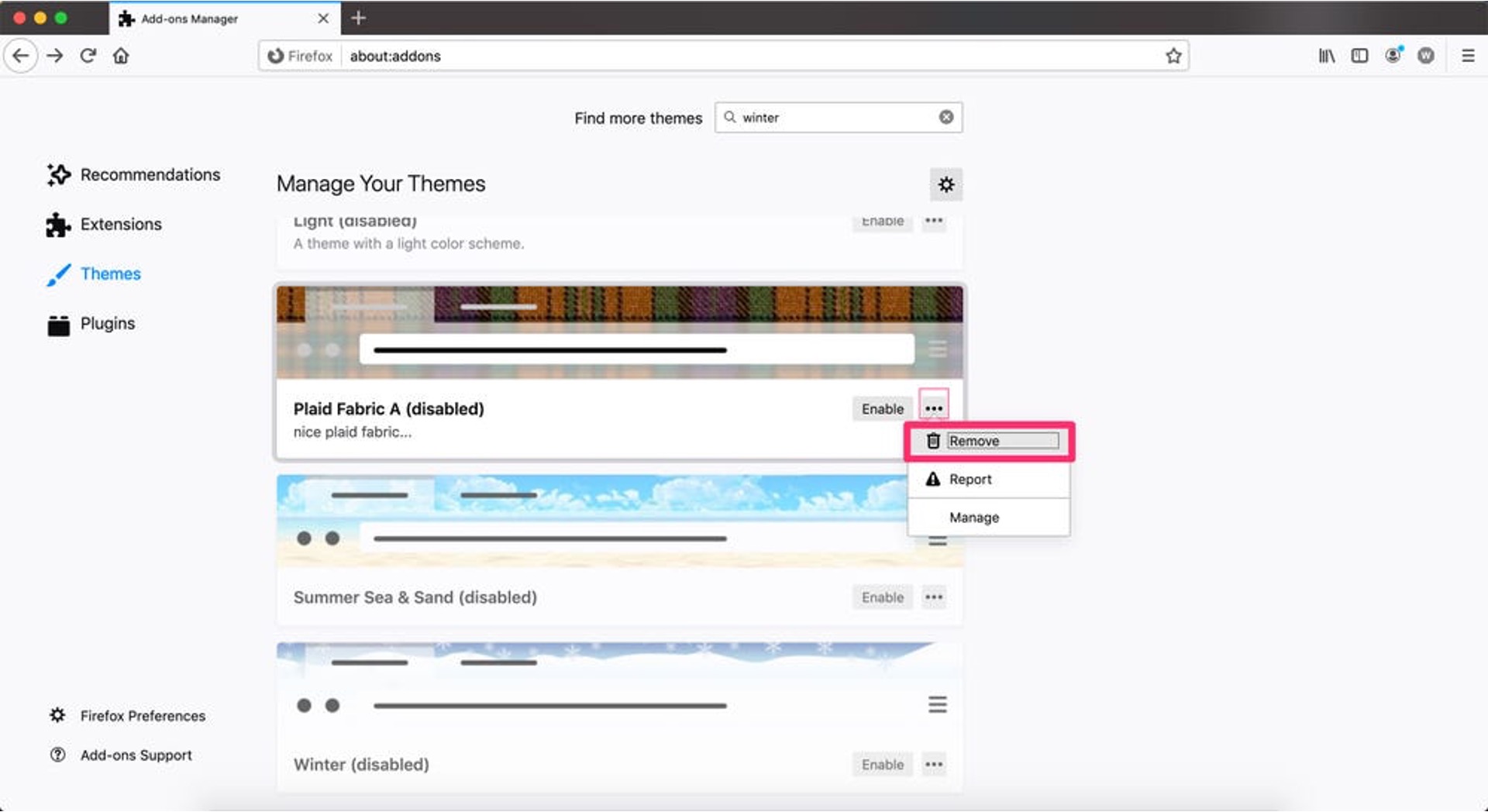Introduction
In today's digital age, web browsers play a pivotal role in our daily lives, serving as gateways to a vast array of online content and services. As we navigate the web, we often encounter various security measures designed to protect us from potential threats and vulnerabilities. One such security feature that has gained prominence is "Strict-Origin-When-Cross-Origin," which is an essential component of web security protocols.
Strict-Origin-When-Cross-Origin is a security mechanism that has been integrated into modern web browsers, including Firefox, to mitigate the risks associated with cross-origin resource sharing. This feature is particularly crucial in preventing certain types of attacks, such as cross-site request forgery (CSRF) and cross-site scripting (XSS), which can compromise the integrity and confidentiality of user data.
As internet users, we rely on web browsers to safeguard our online activities and personal information. With the prevalence of sophisticated cyber threats, it has become increasingly important for browser developers to implement robust security measures. Strict-Origin-When-Cross-Origin represents a significant advancement in this regard, offering enhanced protection against unauthorized access to sensitive data and unauthorized manipulation of web resources.
In the following sections, we will delve into the intricacies of Strict-Origin-When-Cross-Origin, exploring its functionality within the Firefox browser and elucidating the steps to enable this crucial security feature. By gaining a comprehensive understanding of this mechanism, users can empower themselves with the knowledge to bolster their online security and privacy while navigating the dynamic landscape of the internet.
What is Strict-Origin-When-Cross-Origin?
Strict-Origin-When-Cross-Origin, often abbreviated as SOWCO, is a security feature implemented in web browsers to address the potential risks associated with cross-origin resource sharing. In essence, it serves as a safeguard against unauthorized access to sensitive data and helps mitigate the threat of certain types of cyber attacks.
When a web page loads resources from different origins, such as scripts, stylesheets, or images from external domains, it introduces the possibility of cross-origin security vulnerabilities. These vulnerabilities can be exploited by malicious actors to manipulate the behavior of web applications, compromise user data, or execute unauthorized actions on behalf of the user.
Strict-Origin-When-Cross-Origin operates by imposing strict policies on cross-origin requests, thereby enhancing the security posture of web applications. It functions by instructing the browser to enforce a "same-origin" policy for certain types of cross-origin requests, ensuring that only resources from the same origin as the requesting web page are granted access.
This security mechanism is particularly effective in mitigating the risks associated with cross-site request forgery (CSRF) and cross-site scripting (XSS) attacks, which are prevalent in the realm of web security threats. By enforcing strict origin checks, SOWCO helps prevent unauthorized cross-origin requests from being executed, thereby reducing the likelihood of exploitation by malicious entities.
In practical terms, Strict-Origin-When-Cross-Origin enhances the security posture of web applications by imposing restrictions on cross-origin requests, thereby mitigating the potential impact of security vulnerabilities. By implementing this security feature, web browsers can significantly reduce the attack surface for cross-origin attacks, bolstering the overall resilience of web applications against malicious exploitation.
As internet users become increasingly reliant on web-based services for various activities, the importance of robust security measures cannot be overstated. Strict-Origin-When-Cross-Origin represents a crucial advancement in web security, offering a proactive defense against cross-origin security threats and empowering users to navigate the web with greater confidence in the integrity and privacy of their online interactions.
How does Strict-Origin-When-Cross-Origin work in Firefox?
Strict-Origin-When-Cross-Origin (SOWCO) operates as a pivotal security mechanism within the Firefox browser, leveraging its capabilities to fortify the protection of web resources and mitigate the risks associated with cross-origin requests. When a user accesses a web page that incorporates resources from disparate origins, such as scripts, stylesheets, or images from external domains, the potential for cross-origin security vulnerabilities arises. In response to this, SOWCO in Firefox enforces stringent policies to safeguard against unauthorized access and manipulation of resources.
At its core, SOWCO in Firefox functions by imposing a "same-origin" policy for specific types of cross-origin requests. This means that when a web page attempts to fetch resources from external origins, Firefox rigorously evaluates the origin of the requesting page and the target resource. If the origins align, the request is permitted, ensuring that resources are only accessible from the same origin as the requesting web page. This proactive approach significantly reduces the susceptibility of web applications to cross-origin attacks, enhancing the overall security posture of the browsing experience.
Furthermore, SOWCO in Firefox plays a crucial role in mitigating the risks associated with cross-site request forgery (CSRF) and cross-site scripting (XSS) attacks, which are prevalent in the realm of web security threats. By enforcing strict origin checks, Firefox effectively thwarts unauthorized cross-origin requests, thereby curtailing the potential for exploitation by malicious entities. This proactive defense mechanism empowers users to navigate the web with greater confidence, knowing that their online interactions are shielded from unauthorized access and manipulation.
In practical terms, the implementation of SOWCO in Firefox represents a significant advancement in web security, as it proactively reduces the attack surface for cross-origin attacks. By fortifying the integrity and confidentiality of web resources, Firefox users can engage with online content and services with heightened assurance in the robustness of the browser's security measures. As a result, SOWCO in Firefox stands as a testament to the browser's commitment to enhancing user privacy and safeguarding against evolving cyber threats, thereby fostering a more secure and resilient browsing environment for users worldwide.
Benefits of using Strict-Origin-When-Cross-Origin
Implementing Strict-Origin-When-Cross-Origin (SOWCO) in web browsers, such as Firefox, yields a myriad of benefits that significantly enhance the security and privacy of users' online experiences. By imposing stringent controls on cross-origin requests, SOWCO serves as a proactive defense mechanism against a range of potential security vulnerabilities, thereby fortifying the integrity of web applications and the confidentiality of user data.
One of the primary benefits of SOWCO is its ability to mitigate the risks associated with cross-origin security threats, such as cross-site request forgery (CSRF) and cross-site scripting (XSS) attacks. By enforcing strict origin checks, SOWCO effectively reduces the attack surface for these types of vulnerabilities, thereby minimizing the potential for unauthorized access and manipulation of web resources. This proactive approach empowers users to engage with online content and services with greater confidence, knowing that their interactions are shielded from exploitation by malicious entities.
Furthermore, the implementation of SOWCO in Firefox and other web browsers contributes to the establishment of a more resilient and secure browsing environment. By imposing strict policies on cross-origin requests, SOWCO reduces the likelihood of unauthorized cross-origin requests being executed, thereby bolstering the overall security posture of web applications. This, in turn, enhances the trust and confidence of users in the robustness of the browser's security measures, fostering a safer online experience.
Moreover, SOWCO plays a pivotal role in safeguarding the privacy of user data by preventing unauthorized access to sensitive resources from external origins. This is particularly crucial in scenarios where web pages incorporate resources from disparate sources, as SOWCO ensures that only resources from the same origin as the requesting web page are granted access. As a result, users can navigate the web with heightened assurance that their personal information and browsing activities are shielded from unauthorized intrusion and manipulation.
In essence, the benefits of using Strict-Origin-When-Cross-Origin extend beyond mitigating security vulnerabilities; they encompass the establishment of a more secure and privacy-respecting browsing environment. By fortifying the integrity of web resources and mitigating the risks of unauthorized access, SOWCO in Firefox and other web browsers empowers users to engage with online content and services with enhanced confidence in the protection of their privacy and the security of their online interactions.
How to enable Strict-Origin-When-Cross-Origin in Firefox?
Enabling Strict-Origin-When-Cross-Origin (SOWCO) in Firefox is a straightforward process that empowers users to bolster the security of their browsing experience and mitigate the risks associated with cross-origin resource sharing. By activating this crucial security feature, Firefox users can proactively fortify the integrity of web applications and enhance the protection of their online interactions. The following steps outline the process of enabling SOWCO in Firefox, empowering users to navigate the web with heightened assurance in the robustness of their browser's security measures.
-
Accessing Firefox Preferences: To initiate the process, users should first access the Preferences menu in Firefox. This can be accomplished by clicking on the three horizontal lines in the upper-right corner of the browser window to open the menu, then selecting "Preferences" from the dropdown list.
-
Navigating to Privacy & Security Settings: Within the Preferences menu, users should navigate to the "Privacy & Security" tab, which houses a comprehensive array of settings related to privacy, security, and permissions. By clicking on this tab, users gain access to a range of options to customize their browsing experience.
-
Locating the Enhanced Tracking Protection Section: Once in the Privacy & Security tab, users should locate the "Enhanced Tracking Protection" section, which encompasses advanced privacy and security features designed to safeguard against tracking and mitigate security risks.
-
Enabling Strict-Origin-When-Cross-Origin: Within the Enhanced Tracking Protection section, users will find the option to enable Strict-Origin-When-Cross-Origin. By clicking on the dropdown menu next to "Strict-Origin-When-Cross-Origin," users can select the desired level of protection, such as "Enabled" or "Strict."
-
Confirmation and Activation: After selecting the preferred level of protection for SOWCO, users can confirm their choice by closing the Preferences menu. Firefox will then apply the selected settings, enabling Strict-Origin-When-Cross-Origin to fortify the security of cross-origin requests and enhance the resilience of web applications.
By following these simple steps, users can effectively enable Strict-Origin-When-Cross-Origin in Firefox, thereby fortifying the security of their browsing experience and mitigating the potential risks associated with cross-origin resource sharing. This proactive approach empowers users to navigate the web with heightened confidence in the robustness of their browser's security measures, fostering a more secure and privacy-respecting online environment.
Conclusion
In conclusion, the integration of Strict-Origin-When-Cross-Origin (SOWCO) in the Firefox browser represents a significant stride in fortifying the security and privacy of users' online experiences. By imposing stringent controls on cross-origin requests, SOWCO serves as a proactive defense mechanism against a range of potential security vulnerabilities, thereby enhancing the integrity of web applications and the confidentiality of user data.
The implementation of SOWCO in Firefox empowers users to navigate the web with heightened assurance in the robustness of the browser's security measures. By mitigating the risks associated with cross-origin security threats, such as cross-site request forgery (CSRF) and cross-site scripting (XSS) attacks, SOWCO contributes to the establishment of a more resilient and secure browsing environment. This proactive approach significantly reduces the attack surface for these types of vulnerabilities, minimizing the potential for unauthorized access and manipulation of web resources.
Furthermore, SOWCO plays a pivotal role in safeguarding the privacy of user data by preventing unauthorized access to sensitive resources from external origins. By enforcing strict origin checks, SOWCO ensures that only resources from the same origin as the requesting web page are granted access, thereby shielding users' personal information and browsing activities from unauthorized intrusion and manipulation.
Enabling SOWCO in Firefox is a straightforward process that empowers users to bolster the security of their browsing experience and mitigate the risks associated with cross-origin resource sharing. By activating this crucial security feature, Firefox users can proactively fortify the integrity of web applications and enhance the protection of their online interactions.
In essence, the integration of Strict-Origin-When-Cross-Origin in Firefox underscores the browser's commitment to enhancing user privacy and safeguarding against evolving cyber threats, thereby fostering a more secure and resilient browsing environment for users worldwide. As internet users continue to engage with a diverse array of online content and services, the proactive security measures implemented through SOWCO in Firefox serve as a testament to the browser's dedication to prioritizing user security and privacy in an ever-evolving digital landscape.

























